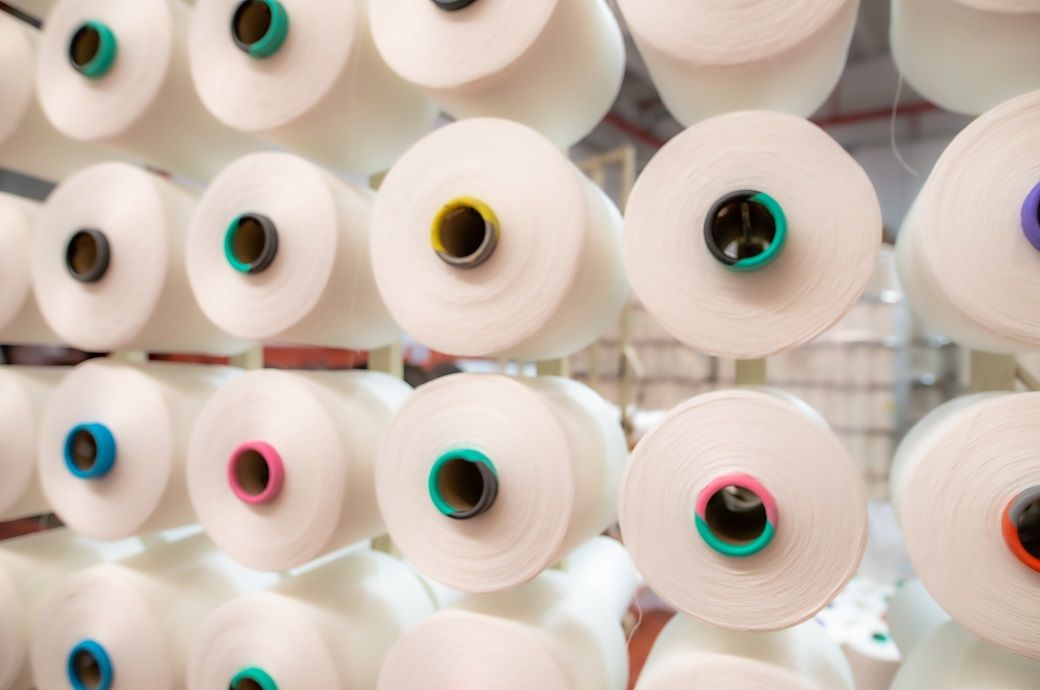
Recycled yarn and raw materials in Panipat also remained steady, as the home textile hub saw sluggish demand from the consumer industry. The market reflected concerns regarding the impact of the tariffs. Panipat is a key production centre for home textile supplies.
The Ludhiana market saw average demand for cotton yarn, but prices were unchanged. Although textile company shares saw a steep rise, the market remained uncertain about actual demand within the textile trade. A trader from the Ludhiana market told Fibre2Fashion, “Traders are waiting for more clarity and direction following the announcement of reciprocal tariffs by the US. Currently, there are no positive cues in the cotton yarn market. It is too early to conclude that the tariff impact will be positive. The sudden rise in import costs will affect the purchasing decisions of US brands and retailers.”
In Ludhiana, 30 count cotton combed yarn was sold at ₹260-270 (approximately $3.05-3.17) per kg (inclusive of GST); 20 and 25 count combed yarn were traded at ₹250-260 (approximately $2.93-3.05) per kg and ₹255-265 (approximately $2.99-3.11) per kg, respectively; and carded yarn of 30 count was noted at ₹240-245 (approximately $2.81-2.87) per kg today, according to trade sources.
Traders in the Delhi market were also concerned, but cotton yarn prices remained unchanged. The market experienced slow demand as export activity was limited. According to market sources, the sudden increase in import duties will immediately raise import costs, disrupting textile and garment supplies to the US. Indian suppliers and the textile value chain are expected to face pressure, as buyers may push for price reductions to offset the additional landed costs.
In Delhi, 30 count combed knitting yarn was traded at ₹259-260 (approximately $3.04-3.05) per kg (GST extra), 40 count combed at ₹284-285 (approximately $3.33-3.34) per kg, 30 count carded at ₹233-235 (approximately $2.73-2.75) per kg, and 40 count carded at ₹258-260 (approximately $3.02-3.05) per kg today.
Panipat, India’s home textile hub, also witnessed weak demand for recycled yarn and its raw materials. However, prices of recycled yarn and raw materials remained stable in the market. Traders stated that stockists and mills are attempting to maintain current price levels. A shortage of workers is the main reason for the slow demand for recycled yarn from downstream industries. Additionally, the tariff hike in the US has dampened market sentiment. Panipat plays a crucial role in supplying home textiles to the global market, including the US.
In Panipat, 10s recycled PC yarn (Grey) was traded at ₹75-78 (approximately $0.88-0.91) per kg (GST paid). Other varieties and counts were noted at 10s recycled PC yarn (Black) at ₹52-55 (approximately $0.61-0.64) per kg, 20s recycled PC yarn (Grey) at ₹95-99 (approximately 1.11-1.16) per kg and 30s recycled PC yarn (Grey) at ₹128-134 (approximately $1.50-1.57) per kg. Cotton comber prices were noted at ₹103-106 (approximately $1.21-1.24) per kg. Recycled polyester fibre (PET bottle fibre) noted at ₹80-82 (approximately $0.94-0.96) per kg today.
In north India, cotton prices remained steady despite a sharp drop in ICE cotton futures. In fact, cotton yarn prices rose further by ₹10–20 per maund of 37.2 kg in the Haryana market. Domestic cotton prices defied the global trend, supported by rising cotton seed prices. Although fibre demand was not particularly strong, the vegetable oilseed segment provided support for cotton seed, thereby stabilising cotton prices.
Cotton arrivals in north India totalled 5,000 bales of 170 kg each, comprising 200 bales in Punjab, 2,000 bales in Haryana, 2,000 bales in upper Rajasthan, and 800 bales in lower Rajasthan. Cotton prices in Punjab ranged from ₹5,600 to ₹5,610 (approximately $65.65–65.77) per maund of 37.2 kg, while in Haryana, prices ranged from ₹5,480 to ₹5,525 (approximately $64.24–64.77). In upper Rajasthan, cotton was priced between ₹5,610–₹5,630 (approximately $65.77–66.00) per maund. In lower Rajasthan, it was priced at ₹53,300–₹54,400 (approximately $624.84–637.73) per candy of 356 kg. Seed cotton was priced at ₹7,300–7,500 (approximately $85.58–87.92) per quintal of 100 kg.
ALCHEMPro News Desk (KUL)
Receive daily prices and market insights straight to your inbox. Subscribe to AlchemPro Weekly!